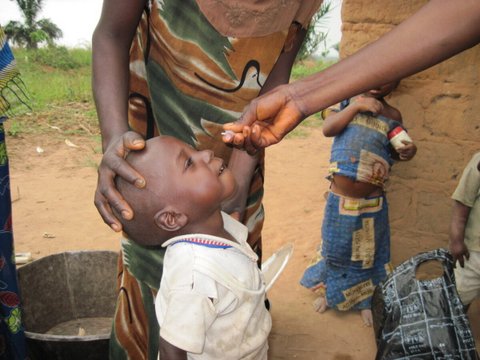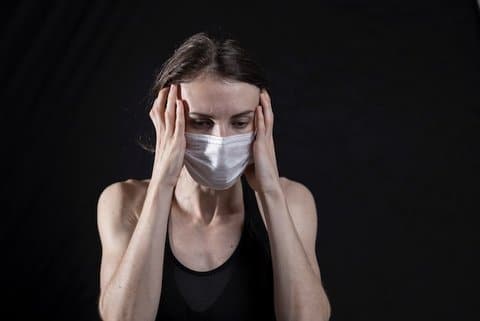
07 Nov COVID-19 Vaccines Can Reduce Risks of Infection and Long COVID

Dr. Nisha Viswanathan, director of UCLA’s Long COVID program, spoke at an Oct. 26 briefing about the illness that sometimes follows a coronavirus infection. (Screenshot captured by Julia Métraux / The CC Pulse)
By Julia Métraux
Like with other infectious diseases, including polio and HIV, people who contract COVID-19 can develop a post-infectious condition. Known as long COVID, its symptoms can include debilitating fatigue, cardiovascular issues and respiratory problems.
At an Ethnic Media Services press briefing Oct. 26, three health professionals spoke about challenges in treating long COVID, as well as stopping the spread of COVID-19.
The only way to completely avoid developing long COVID is to not contract COVID-19. Vaccinations and boosters can decrease the risk of getting COVID-19 and minimize the risk of death and severe acute issues if you do get it.
In addition to causing symptoms that could affect people’s quality of life, an August report from the Brookings Institute suggests that long COVID could be keeping as many as 4 million Americans out of work.
“What we know is that patients that suffer from long COVID have a wide range of ongoing health problems after being infected with COVID-19,” said Dr. Jose Luis Perez, chief medical officer of South Central Family Health Center in Los Angeles. “It is difficult for healthcare providers to recognize, especially when you see the [symptoms] associated with it.”
Long COVID is generally diagnosed through the history of a documented or suspected COVID-19 case. But it can still be important for doctors to investigate whether symptoms are linked to long COVID, an existing problem that may have flared due to a COVID-19 infection, or a new issue altogether that is not linked to a COVID-19 infection, all of which deserve treatment.
“We’ve seen that with many of our patients, it’s really a matter of taking a long time to sit and truly talk about their symptoms and their various medical illnesses,” said Dr. Nisha Viswanathan, director of UCLA’s Long COVID program.
However, she said, many primary care doctors see so many patients in a day that they often do not have time to rule out other potential issues before referring to long COVID clinics.
Viswanathan encourages all of her patients to get COVID-19 vaccinations and boosters to protect themselves from reinfections.
“Some of these boosters have also been proven to even decrease some of the fatigue and brain fog that we’re seeing in long COVID,” she said.
In her long COVID clinic, Viswanathan has seen large wealth disparities in the patients she treats. For example, some of her patients fly in to visit on private jets.
“On the other hand, we have patients who are having to take the bus to come to their appointment, and their insurance will not cover supplements,” she said.
For over a year, researchers have raised the alarm on how long COVID may be disproportionately affecting communities of color, particularly Black, Latine and Indigenous people. This does not surprise Perez, given the impact of COVID-19 on the aforementioned groups.
“Higher rates of social determinants of health places individuals at higher risk of COVID infections and, thus, long COVID syndrome,” Perez said.
Michelle Burroughs, director of community engagement and outreach for the UC Riverside School of Medicine’s Center for Healthy Communities, said there is still a lot of work to be done to address concerns from Black communities about the COVID-19 vaccine, which are driven by a history of incidents of medical racism, including the Tuskegee study, in the United States.
>>>Read: Mistrust and Misinformation Hold Back Black Vaccination Rates
“Unfortunately, histories of medical abuse and trauma enacted by the government and current social and political factors that we’ve seen played out…there’s a belief still that Black lives aren’t valued,” said Burroughs.
How should healthcare professionals address these inequities? Burroughs said building trust is an important step in encouraging people to get vaccinated against COVID-19, thereby limiting their risk of contracting this infectious disease and developing long COVID.
“As healthcare professionals, we should work to build trust, be willing to address people’s fears and concerns and check our biases to ensure we are providing quality and equitable care to all that we serve,” Burroughs said.






No Comments